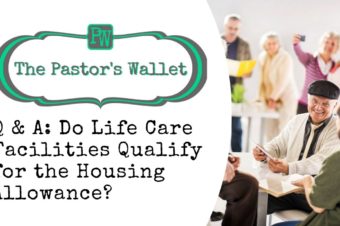Do you remember back in 2017 when credit reporting agency Equifax had a data breach that compromised the personal information of over 147 million Americans? Yes, an organization that collects our Social Security numbers and our financial information without our consent got hacked and lost half of America’s information. Here is an article from when it happened if you want to read more about it.
As you may suppose, people weren’t very happy about it. A lot of people never even realized that Equifax had their information, much less lost it.
Well, Equifax has been in discussions with the Federal Trade Commission, the Consumer Financial Protection Bureau, and 50 U.S. states and territories, and they’ve finally come up with a settlement. Two years later and they’ve finally figured it out. Now that they’ve come to an agreement, it’s your turn to act.
Was Your Data Compromised?
The first thing you need to do is determine if your personal information was compromised. You can do that here.
When the breach first occurred, I used their website to see if I was affected and the results were negative. I think they’ve refined it a bit to make it more accurate, though, because now it says that I was affected. So, even if you checked before, you should check again. You can also check on behalf of your minor children and file claims for them if necessary.
If your information was not leaked, then the rest of this article is irrelevant for you and you can move on with your day. However, you may want to share it with your friends and loved ones in case they were affected.
What Compensation Do You Want?
If your data was compromised, you have several opportunities for compensation. These are your options:
- Free Credit Monitoring – They will provide at least 4 years of free credit monitoring with all three credit bureaus, offered through Experian. They will also provide up to 6 more years of credit monitoring with only one bureau, provided by Equifax.
- Cash Payment – For those that already have credit monitoring services that will continue for at least 6 more months, you can choose to receive a cash payment instead. The maximum payment is $125 and the amount will depend on how many claims are filed, so it could be a lot less.
In addition, if you have invested time and money into remedying fraud, identity theft, or other misuse of your personal information caused by the data breach, or purchasing credit monitoring or freezing credit reports because of it, you could be reimbursed up to $20,000. Time is valued at $25 an hour and you will need documentation to prove your claim.
How Do You File A Claim?
Speaking of claims, you have to file one by January 22, 2020, in order to receive any of the above. You can file a claim here. The process is pretty straight forward, but I’ll walk you through it anyway.
After clicking that link, it will take you to a page with a big FILE A CLAIM ONLINE button and also instructions for filing a hard-copy claim or for a minor.

Click the button and it will take you to an instruction page. Once you click Next, you will get a page that looks like this to fill out your personal information:

Clicking Next will take you to the page where you choose either credit monitoring or cash. If you choose cash, you will be asked to give them the name of your current credit monitoring agency.

The next page, Section 2, is where you can get reimbursed for your time:

Next, Section 3 gives you the option to file a claim for lost or spent money related to the data breach.

If you requested a cash payment, Section 4 asks how you would like to receive it.

Finally, you will be given a claim summary where you can double check the information you gave, agree to some disclosures, and sign electronically.

And then you’re done! It’s that simple.

Remember, all claims must be filed by January 22, 2020.
What If I Want To Sue?
If you file a claim as detailed above, you will waive your right to sue Equifax. In fact, even if you do nothing, you will still waive your right to sue Equifax. The only way to keep your right to pursue legal action against them is by mailing in a written “Request for Exclusion.”
To keep the door to legal action open, you have to act soon. Your “Request for Exclusion” must be postmarked by November 19, 2019, for it to count. If you haven’t done anything by November 20, then you’re out of luck and cannot take legal action against Equifax related to the data breach. You can read more about this option here.
If you have any questions beyond what is provided here, visit https://www.equifaxbreachsettlement.com/.


















